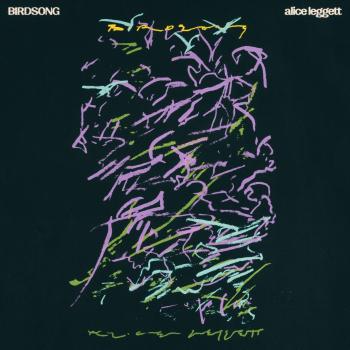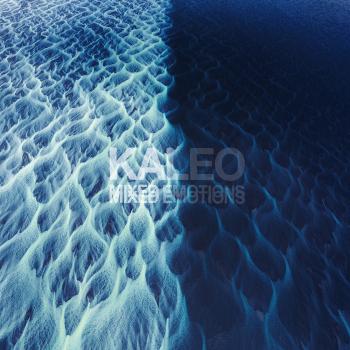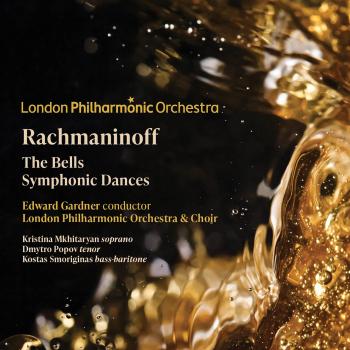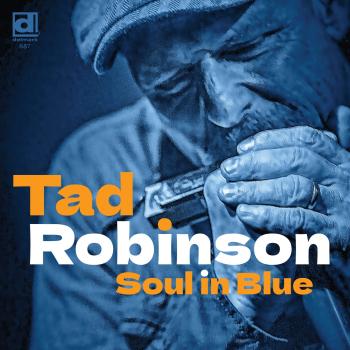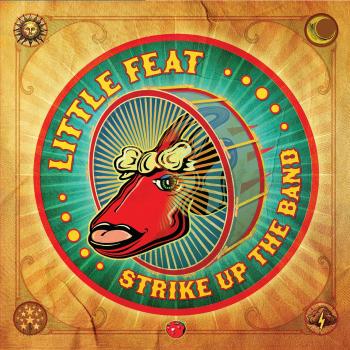Hank Jones, Christian McBride, Jimmy Cobb
Biography Hank Jones, Christian McBride, Jimmy Cobb
Hank Jones
The three adjectives that most consistently crop up when people describe Hank Jones are “urbane,” “elegant,” and “witty.” Jones, who for the past 30 years has been one of the very finest pianists to operate from within the mainstream of jazz’s rich tradition, and who has played and recorded with an astounding roster of musicians, is currently enjoying the most attention he has ever received from the public, the press, and the music business.
Known primarily in the past as a sideman who always plays the right thing at the right time, Jones decided, for his second release on Galaxy, to record a full album of piano solos. It is a case of an ideal rhythm section leader setting aside his implacable groove, for a moment, in order to explore a few deeper recesses of his inner self.
Born in Pontiac, Michigan (a suburb of Detroit) on July 31, 1918, Hank during the mid-Thirties learned from the great examples of Art Tatum, Fats Waller, and, especially, Teddy Wilson. He was the first of the three Jones brothers (the other two being Thad and Elvin) to leave Detroit for New York, the nation’s center of jazz activity.
Although his sensibility was rooted in the Swing Era, Jones matriculated into the New York scene during the flowering of bebop; he had no trouble adapting to bop’s more rigorous harmonic and rhythmic requirements, and evolved a lucid style which ingeniously synthesized swing and bop into an approach that was personal and flexible. He could play with just about anyone.
Jones cut his first record date in 1944, a session led by trumpeter Hot Lips Page and produced by Leonard Feather. He accompanied singer Billy Eckstine, played in the sextet of bassist John Kirby, in trumpeter Howard McGhee’s combo, with tenor great Coleman Hawkins, and on one of the first (1947) Jazz at the Philharmonic tours, where he met Ella Fitzgerald. He then was Ella’s accompanist from 1948 through 1953.
Resuming his freelance status in New York, Jones, by the mid-Fifties, was firmly established as one of the class pianists in jazz. He worked in several combos with Benny Goodman between 1956 and 1958, began a 20-year association with CBS, and continued to be selected for an enviable series of record dates.
The esteem in which Jones has been held by the jazz community is indicated by a partial list of those who have asked him to play on their dates: Charlie Parker, Lester Young, Ella, Hawkins, Milt Jackson, Cannonball Adderley, Nat Cole, Sonny Stitt, Jimmy Rushing, Oliver Nelson, Wes Montgomery, Ben Webster, Donald Byrd, Paul Chambers, the Thad Jones/Mel Lewis Orchestra, Ray Brown, Chet Baker, Kenny Burrell, and Bobby Hutcherson.
In 1975, Jones began stepping up his public appearances and recording dates as a leader. He played in a trio with Ron Carter and Tony Williams, with whom he recorded a pair of award-winning albums for Japan; he recorded for the Concord Jazz, Muse, Progressive, and Chiaroscuro labels before signing with Galaxy; he made several television appearances; and he performed at concerts and jazz festivals including Newport, Monterey, Concord, and overseas.
“A precise, nimble performer,” Whitney Balliett has called Jones, who “is distinguished by his beautiful touch.” The Hank Jones conception, several facets of which are spotlighted on his new Galaxy album Tiptoe Tapdance, has always transcended fashions, schools, and conventions. He is one of an endangered species of complete jazz pianists who can meet just about any musical challenge with grace, inventiveness, and a personal touch that is affecting without being overbearing. In the company of other musicians, Jones swings ceaselessly, though subtly; on this sole venture, he is more leisurely, philosophical, and even religious—there are two beautiful new interpretations of traditional spirituals, “It’s Me O Lord” and “Lord, I Want to Be a Christian,” as well as standards including “Sweet Lorraine” and “I Didn’t Know What Time It Was.”
Whatever material or format he chooses, the delightful fact is that Hank Jones, nearing his sixtieth birthday, is at the peak of his powers and is sharing his music with the public as never before.
Christian McBride
moved to New York in 1989 to pursue classical studies at the Juilliard School. There he was promptly recruited to the road by saxophonist Bobby Watson. Call it a change in curriculum: a decade’s worth of study through hundreds of recording sessions and countless gigs with an ever-expanding circle of musicians. He was finding his voice, and others were learning to listen for it.
In 2000 the lessons of the road came together in the formation of what would become his longest-running project, the Christian McBride Band. Praised by writer Alan Leeds as "one of the most intoxicating, least predictable bands on the scene today," the CMB—saxophonist Ron Blake, keyboardist Geoffrey Keezer, and drummer Terreon Gully—have been collectively evolving McBride's all-inclusive, forward-thinking outlook on music through their incendiary live shows, as chronicled on 2006’s Live at Tonic. Part excursion, part education, the CMB is a vehicle built on a framework of experience and powered by unfettered creativity: a mesmerizing dance on the edge of an electro-acoustic fault line.
In 2009 McBride began focusing this same energy through a more traditional lens with the debut of his critically-acclaimed Inside Straight quintet, and again with the Christian McBride Big Band, whose 2012 release The Good Feeling won the GRAMMY for Best Large Ensemble Jazz Album. As his career entered its third decade, McBride added the role of mentor, tapping rising stars pianist Christian Sands and drummer Ulysses Owens, Jr. for the Christian McBride Trio’s GRAMMY-nominated album Out Here.
He is also a respected educator and advocate, first noted in 1997 when he spoke on former President Bill Clinton's town hall meeting "Racism in the Performing Arts." He has since been named Artistic Director of the Jazz Aspen Snowmass Summer Sessions (2000), co-director of the National Jazz Museum in Harlem (2005), and the Second Creative Chair for Jazz of the Los Angeles Philharmonic Association (2005).
In 1998 he combined roles, composing "The Movement, Revisited," a four-movement suite dedicated to four of the major figures of the civil rights movement: Rosa Parks, Malcolm X, Muhammad Ali and Dr. Martin Luther King, Jr. The piece was commissioned by the Portland (ME) Arts Society and the National Endowment for the Arts, and performed throughout New England in the fall of 1998 with McBride's quartet and a 30-piece gospel choir. For its tenth anniversary, "The Movement, Revisited" was expanded, rewritten, and revamped to feature an 18-piece big band and four actors/speakers in addition to the gospel choir. It was performed in Los Angeles at Walt Disney Concert Hall, and praised by the Los Angeles Times as "a work that was admirable—to paraphrase Dr. King—for both the content of its music and the character of its message."
Currently he hosts and produces “The Lowdown: Conversations With Christian” on SiriusXM satellite radio and National Public Radio’s “Jazz Night in America,” a weekly radio show and multimedia collaboration between WBGO, NPR and Jazz at Lincoln Center, showcasing outstanding live jazz from across the country. With his staggering body of work, McBride is the ideal host, drawing on history, experience, and a gift for storytelling to bridge the gap between artist, music, and audience. He brings that same breadth of experience to bear as Artistic Advisor for Jazz Programming at the New Jersey Performing Arts Center (NJPAC).
Completing the circle is his work with Jazz House Kids, the nationally recognized community arts organization founded by his wife, vocalist Melissa Walker. Exclusively dedicated to educating children through jazz, the “Jazz House” concept brings internationally renowned jazz performers to teach alongside a professional staff, offering students a wide range of creative programming that develops musical potential, enhances leadership skills, and strengthens academic performance. This shared celebration of America’s original musical art form cultivates tomorrow’s community leaders and global citizens while preserving its rich legacy for future generations.
Whether behind the bass or away from it, Christian McBride is always of the music. From jazz (Freddie Hubbard, Sonny Rollins, J.J. Johnson, Ray Brown, Milt Jackson, McCoy Tyner, Roy Haynes, Chick Corea, Herbie Hancock, Pat Metheny, to R&B (Isaac Hayes, Chaka Khan, Natalie Cole, Lalah Hathaway, and the one and only Godfather of Soul himself, James Brown) to pop/rock (Sting, Paul McCartney, Carly Simon, Don Henley, Bruce Hornsby) to hip-hop/neo-soul (The Roots, D'Angelo, Queen Latifah) to classical (Kathleen Battle, Edgar Meyer, Shanghai Quartet, Sonus Quartet), he is a luminary with one hand ever reaching for new heights, and the other extended in fellowship—and perhaps the hint of a challenge—inviting us to join him.
Jimmy Cobb
born Jimmy Wilbur Cobb on January 20, 1929 in Washington, D.C., is an American jazz drummer, best known for his drumming on Miles Davis' Kind of Blue.
Cobb has worked with the likes of Cannonball Adderley, Pearl Bailey, John Coltrane, Miles Davis, Bill Evans, Gil Evans, Red Garland, Stan Getz, Dizzy Gillespie, Joe Henderson, Billie Holiday, Wes Montgomery, Clark Terry, Sarah Vaughan, Dinah Washington, Nancy Wilson and numerous others.
Cobb's first recording experience was with Earl Bostic and played extensively with Dinah Washington, Billie Holiday, Pearl Bailey, Clark Terry, Dizzy Gillespie, and Cannonball Adderly before joining Miles in 1957.
In 1963, Cobb left the Miles Davis band (Tony Williams took over the drum chair) but continued to work with Miles’ rhythm section (Winton Kelly and Paul Chambers), to play behind Wes Montgomery. Cobb, Kelly and Chambers recorded several Winton Kelly Trio Albums, plus recorded with Kenny Burrell, and J.J. Johnson, among others, before disbanding in the late 1960s.
Jimmy went on to work with Sarah Vaughn for 9 years and continued to freelance with several great groups throughout the 70's 80's and 90s including Sonny Stitt, Nat Adderly, Ricky Ford, Hank Jones, Ron Carter, George Coleman, Fathead Newman, The Great Jazz Trio with Nancy Wilson, Dave Holland, Warren Bernhardt, and numerous others worldwide.
In the early 1990's, a television special produced by Eleana Tee featured Jimmy playing and hanging with Freddie Hubbard, Gregory Hines, Bill Cosby, Dave Leibman and Pee Wee Ellis, and others. Jimmy has played around the world from Newport to Monte Carlo, from LA to Japan. Cobb has performed for both Presidents Ford, and Carter, the Shah of Iran and many other dignitaries in his storied career. He is also quoted extensively in Kind of Blue, the documentary of those legendary recording sessions as well as writing the forward for the book —Kind of Blue— the making of the Miles Davis Masterpiece in 2000.
In 2002, Jimmy completed a Four Generations of Miles album with guitarist, Mike Stern, Ron Carter (bass), and George Coleman (tenor) for Chesky records. Other releases include his long awaited solo album, "Yesterdays", produced by Eleana Tee for Rteesan Productions. It features Michael Brecker on tenor, Marion Meadows on soprano, Roy Hargrove, trumpet and flugelhorn, Jon Faddis, trumpet, Eric Lewis, electric piano, Peter Bernstein, guitar, and John Weber on bass. This album was done in Jimmy’s two adopted home towns; recorded and shot in New York, and mixed and edited in Woodstock, NY. It includes a wide variety of arrangements ranging from a unique interpretation of Jimi Hendrix "Purple Haze" to ballads "Yesterdays" and blues (All Blues, Faddis, Monk) and standards, "Without a Song" and "Love Walked Right In". This major musical statement will include several music videos and a complete television documentary.
Cobb has released three additionl albums, produced by Eleana Steinberg Tee and David Chesky; New York Time, Cobb’s Corner and West of 5th.
As of 2011, Cobb leads his own group, the Jimmy Cobb 'So What' Band, a tribute to 50 years of Kind of Blue and the music of Miles Davis. He also continues to travel and give masterclasses around the globe.

